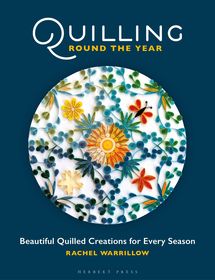
The Vampire in Contemporary Popular Literature
Series: Routledge Studies in Contemporary Literature;
- Publisher's listprice GBP 150.00
-
71 662 Ft (68 250 Ft + 5% VAT)
The price is estimated because at the time of ordering we do not know what conversion rates will apply to HUF / product currency when the book arrives. In case HUF is weaker, the price increases slightly, in case HUF is stronger, the price goes lower slightly.
- Discount 20% (cc. 14 332 Ft off)
- Discounted price 57 330 Ft (54 600 Ft + 5% VAT)
Subcribe now and take benefit of a favourable price.
Subscribe
71 662 Ft

Availability
Estimated delivery time: In stock at the publisher, but not at Prospero's office. Delivery time approx. 3-5 weeks.
Not in stock at Prospero.
Why don't you give exact delivery time?
Delivery time is estimated on our previous experiences. We give estimations only, because we order from outside Hungary, and the delivery time mainly depends on how quickly the publisher supplies the book. Faster or slower deliveries both happen, but we do our best to supply as quickly as possible.
Product details:
- Edition number 1
- Publisher Routledge
- Date of Publication 5 November 2013
- ISBN 9780415823012
- Binding Hardback
- No. of pages254 pages
- Size 229x152 mm
- Weight 460 g
- Language English 0
Categories
Short description:
Prominent examples from contemporary vampire literature expose a desire to re-evaluate and re-work the long-standing, folkloristic interpretation of the vampire as the immortal undead. This book explores the "new vampire" as a literary trope, offering a comprehensive critical analysis of vampires in contemporary popular literature and demonstrating how they engage with essential cultural preoccupations, anxieties, and desires. Drawing from cultural materialism, anthropology, psychoanalysis, literary criticism, gender studies, and postmodern thought, Piatti-Farnell re-frames the concept of the vampire in relation to a distinctly twenty-first century brand of Gothic imagination, highlighting important aesthetic, conceptual, and cultural changes that have affected the literary genre in the post-2000 era. She places the contemporary literary vampire within the wider popular culture scope, also building critical connections with issues of fandom and readership. In reworking the formulaic elements of the vampiric tradition — and experimenting with genre-bending techniques — this book shows how authors such as J.R. Ward, Stephanie Meyers, Charlaine Harris, and Anne Rice have allowed vampires to be moulded into enigmatic figures who sustain a vivid conceptual debt to contemporary consumer and popular culture. This book highlights the changes — conceptual, political and aesthetic — that vampires have undergone in the past decade, simultaneously addressing how these changes in "vampire identity" impact on the definition of the Gothic as a whole.
MoreLong description:
Prominent examples from contemporary vampire literature expose a desire to re-evaluate and re-work the long-standing, folkloristic interpretation of the vampire as the immortal undead. This book explores the "new vampire" as a literary trope, offering a comprehensive critical analysis of vampires in contemporary popular literature and demonstrating how they engage with essential cultural preoccupations, anxieties, and desires. Drawing from cultural materialism, anthropology, psychoanalysis, literary criticism, gender studies, and postmodern thought, Piatti-Farnell re-frames the concept of the vampire in relation to a distinctly twenty-first century brand of Gothic imagination, highlighting important aesthetic, conceptual, and cultural changes that have affected the literary genre in the post-2000 era. She places the contemporary literary vampire within the wider popular culture scope, also building critical connections with issues of fandom and readership. In reworking the formulaic elements of the vampiric tradition — and experimenting with genre-bending techniques — this book shows how authors such as J.R. Ward, Stephanie Meyers, Charlaine Harris, and Anne Rice have allowed vampires to be moulded into enigmatic figures who sustain a vivid conceptual debt to contemporary consumer and popular culture. This book highlights the changes — conceptual, political and aesthetic — that vampires have undergone in the past decade, simultaneously addressing how these changes in "vampire identity" impact on the definition of the Gothic as a whole.
MoreTable of Contents:
Introduction. 1. The Vampire Make Up 2. Vampire Bodies 3. The Vampire’s Influence 4. Vampire Rituals and Customs 5. Vampire Spaces. Conclusion.
More

X-Men: Gold - Bruderschaft: Bd. 5
7 046 HUF
6 694 HUF











